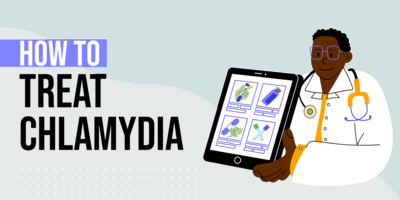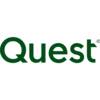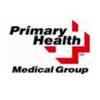
How to Treat Chlamydia
Chlamydia is a bacterial infection that is spread by sexual contact, according to the CDC. It is one of the most...
Read moreHelp patients book appointments with you on Solv. It's free!
17 instant-book locations

No more surprise bills. Solv is committed to making getting healthcare as easy as buying groceries at the store, including knowing the price of care upfront.







Help patients book appointments with you on Solv. It's free!
According to the CDC, everyone between the ages of 13 and 64 should get tested for HIV at least once as part of routine health care. Those at higher risk should get tested more often. This includes people who have had sex with an HIV-positive partner, those who have had multiple partners, people who have shared needles or works to inject drugs, and those who have exchanged sex for drugs or money. If you're unsure about your risk, talk to your healthcare provider about getting tested.
Getting tested for HIV is crucial for several reasons. Firstly, it allows you to know your status and take control of your health. If you test positive, you can start treatment immediately, which can help you live a long, healthy life. Secondly, knowing your status helps prevent transmission to others. Finally, early detection of HIV can lead to better health outcomes and lower the risk of complications.
Urgent care and walk-in clinics offer quick and convenient HIV testing services. One such clinic is the Oasis Medical Center & Urgent Care in Eagle, ID. You can book same-day and next-day testing appointments at this clinic through Solv’s website and mobile app.
Primary care providers are another excellent option for HIV testing. They can provide confidential testing and counseling services. Primary Health in Boise, ID, is one such provider. You can book an appointment with them through Solv.
Community health centers often offer free or low-cost HIV testing. These centers are an excellent resource for those who may not have insurance or who are concerned about cost.
At-home HIV testing kits are also available. These kits allow you to take the test in the privacy of your own home and then send the sample to a lab for analysis.
The prevalence of HIV in Nampa, ID, is lower than the national average, according to the CDC. However, this does not mean that the risk is non-existent. It's important to remember that HIV can affect anyone, regardless of where they live.
The primary risk factors for HIV in Nampa are unprotected sex and sharing needles or works to inject drugs. Other factors, such as having multiple sexual partners or having other sexually transmitted infections, can also increase the risk.
In addition to HIV, other common STDs in Nampa include gonorrhea, chlamydia, syphilis, and hepatitis. These STDs can also increase the risk of acquiring HIV, so it's important to get tested for these infections as well.
Solv has strict sourcing guidelines and relies on peer-reviewed studies, academic research institutions, and medical associations. We avoid using tertiary references.
Everyone between the ages of 13 and 64 should take an HIV test at least once in their lives. Some people are more likely to get HIV and should be tested more regularly. Those who have had sex with an HIV-positive partner, those who inject drugs, sexually active gay men, and those who have unprotected sex are all included. You should get checked every 6-12 months if you have any of these risk factors.
Antibodies created by your body in reaction to the virus are examined in HIV tests. A blood test or a sample of cells obtained from the inside of the cheek can be used to do this. After that, the sample is transported to a lab, where a technician will look for antibodies.
It can take a long time for your body to build enough antibodies for an HIV test to detect the illness if you become sick. It may take 3-12 weeks for your blood to contain adequate antibodies. Even if you have HIV, you could have a negative test result during this time.
Because the sample must be sent to a laboratory for investigation, most HIV test results might take anywhere from a few days to several weeks. On the other hand, some Nampa clinics or doctor's offices may offer rapid HIV testing, which can deliver a diagnosis in as little as 20 minutes. Rapid HIV testing involve a little sample of blood or fluid obtained from the mouth. You'll need a follow-up blood test to confirm the diagnosis if a fast test comes up positive.
A variety of factors influence the cost of an HIV test, including the type of test you receive, the location where you are tested, and whether or not you have health insurance. HIV testing may be provided for free or at a low cost by some clinics or health authorities. If you're a college student, you might be able to get free HIV tests through your school.
The majority of insurance coverage cover HIV testing. The Affordable Care Act mandates that all new health plans provide free HIV testing for those aged 15 to 65. If you have any doubts about what is covered under your individual health plan, you can always call your insurance company or go to their website.
Many Nampa health clinics, doctor's offices, and the health department offer HIV testing. Some pharmacies with on-site clinics may also be able to give HIV testing. Even though some clinics accept walk-in appointments, making an appointment ahead of time will save you time and ensure that you receive your test on the same day.
Yes, Solv offers same-day and next-day HIV testing appointments. We collaborate with thousands of healthcare providers across the country to make it easier for everyone to access the medical assistance they require quickly and conveniently. On our website, you can choose a physician near you and make an appointment right now.
Simply type "HIV test" and your location into our website's search box. You'll find a list of providers and their available appointment times on the next page. Fill out the form to arrange an appointment at a time and location that is convenient for you. Make certain that your appointment is for "HIV testing."
Although there are several home HIV tests available, not all of them are accurate or FDA-approved. For a home test, you'll need a swab from the inside of your mouth or a blood sample taken with a finger pricker. If you get a positive result on a home HIV test, you should see a doctor to confirm the diagnosis and start treatment.
Annual Wellness Exam in Nampa
Chickenpox Vaccine in Nampa
DOT Exam in Nampa
Ear Wax Removal in Nampa
Eye Exam in Nampa
Flu Shot in Nampa
Hepatitis Vaccine in Nampa
Measles Vaccine (MMR) in Nampa
Pap Smear in Nampa
Physical Exam in Nampa
Shingles Vaccine in Nampa
Sinus Infection Treatment in Nampa
Sports Physicals in Nampa
Tetanus Shot in Nampa
Typhoid Vaccine in Nampa
Well-Woman Exam in Nampa
Yellow Fever Vaccine in Nampa
A1C Test in Nampa
CMP Test in Nampa
Chlamydia Test in Nampa
Diabetes Test in Nampa
Gonorrhea test in Nampa
H Pylori Test in Nampa
HIV Test in Nampa
Hepatitis test in Nampa
Herpes Test in Nampa
Mono Test in Nampa
Pregnancy Test in Nampa
STD Testing in Nampa
Strep Test in Nampa
Syphilis test in Nampa
TB Test in Nampa
Thyroid Test in Nampa
Trichomonas Test in Nampa
Vitamin D Test in Nampa
Tips, advice, news—your resource to stay healthy and safe while improving your experience with healthcare providers when you need them.